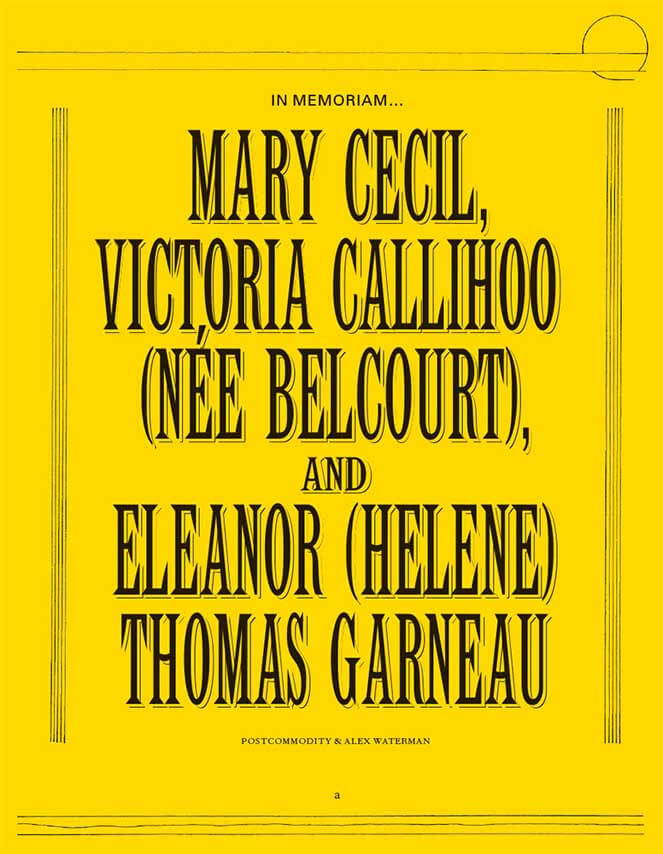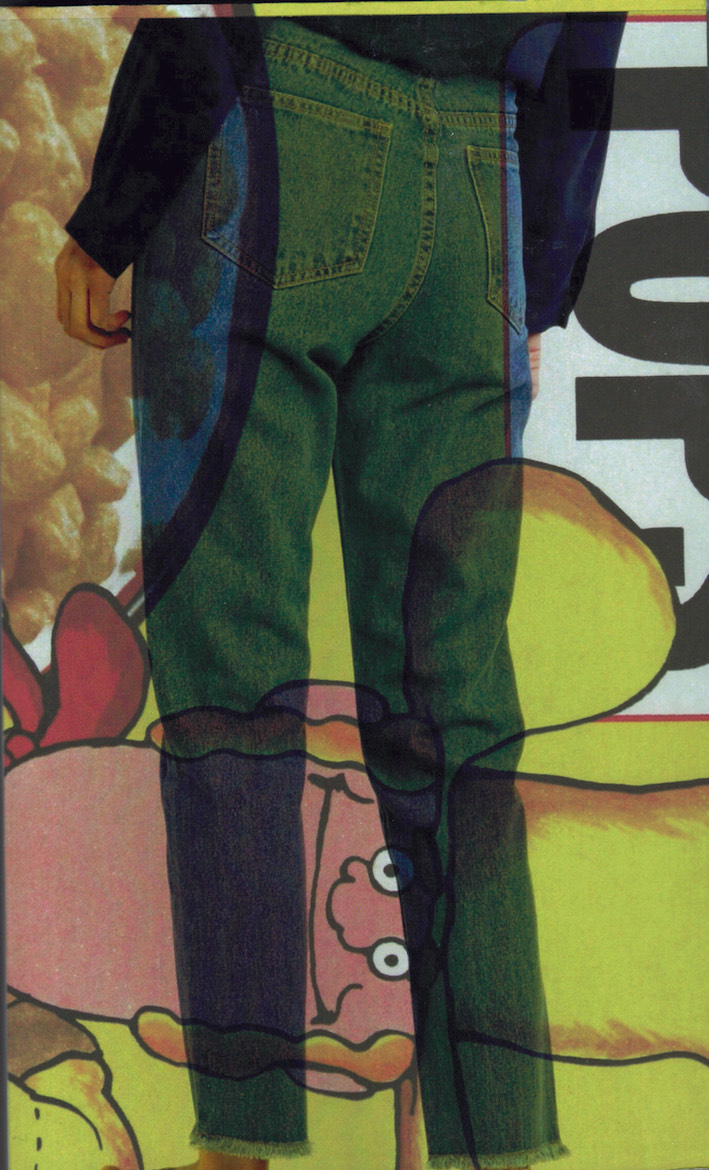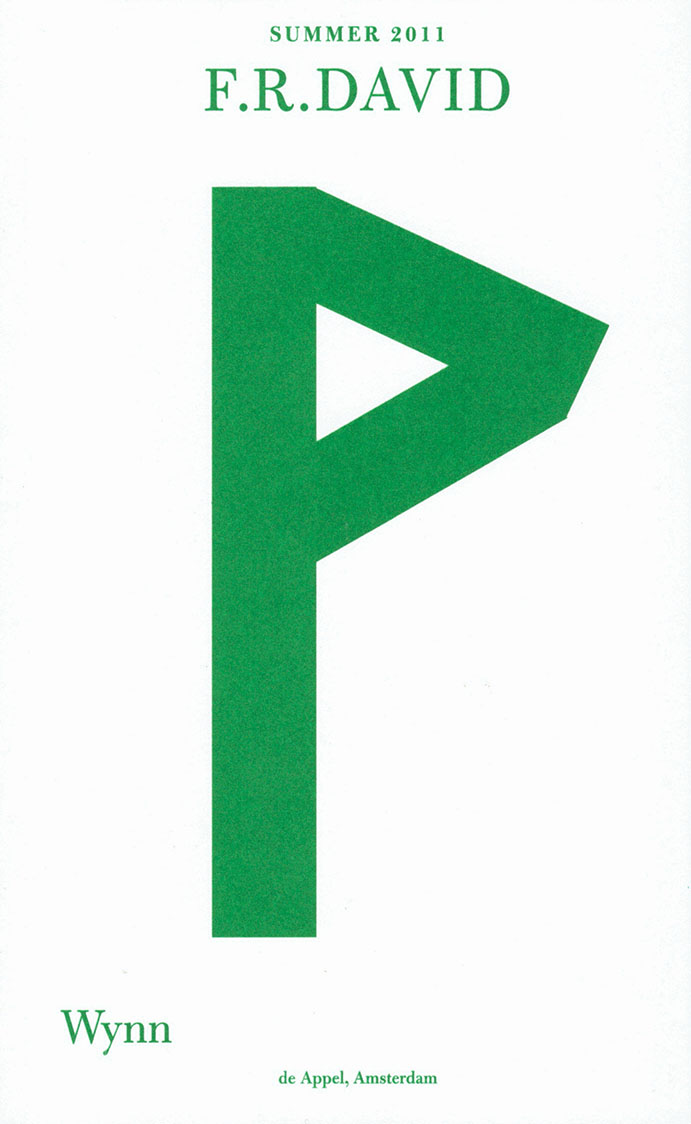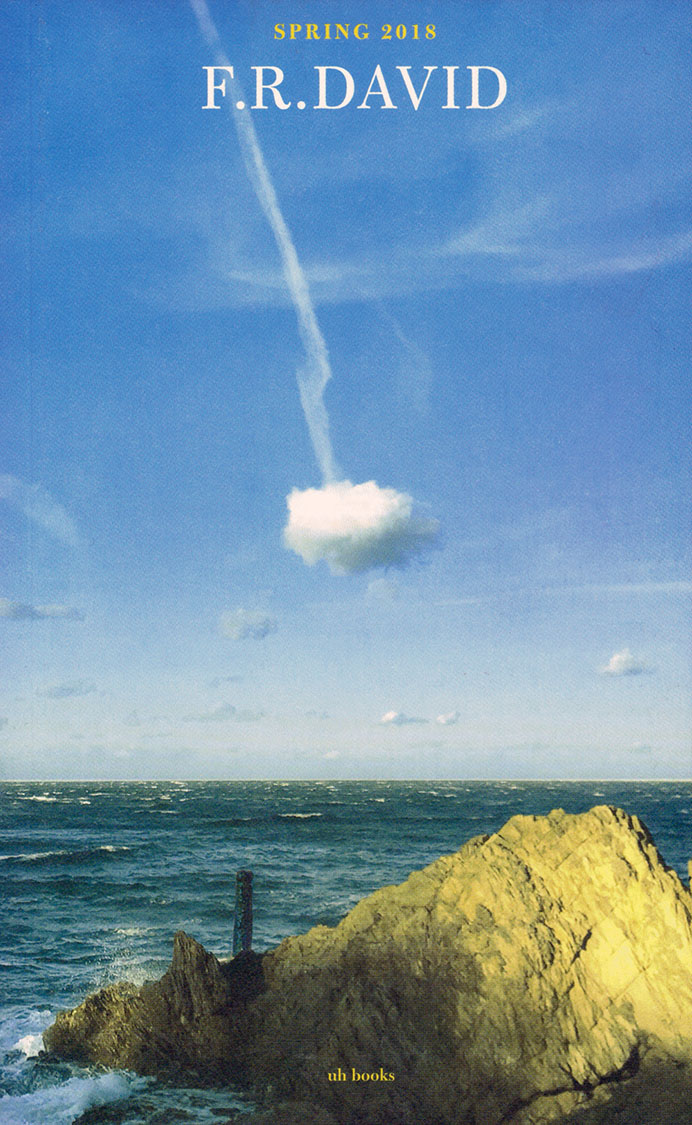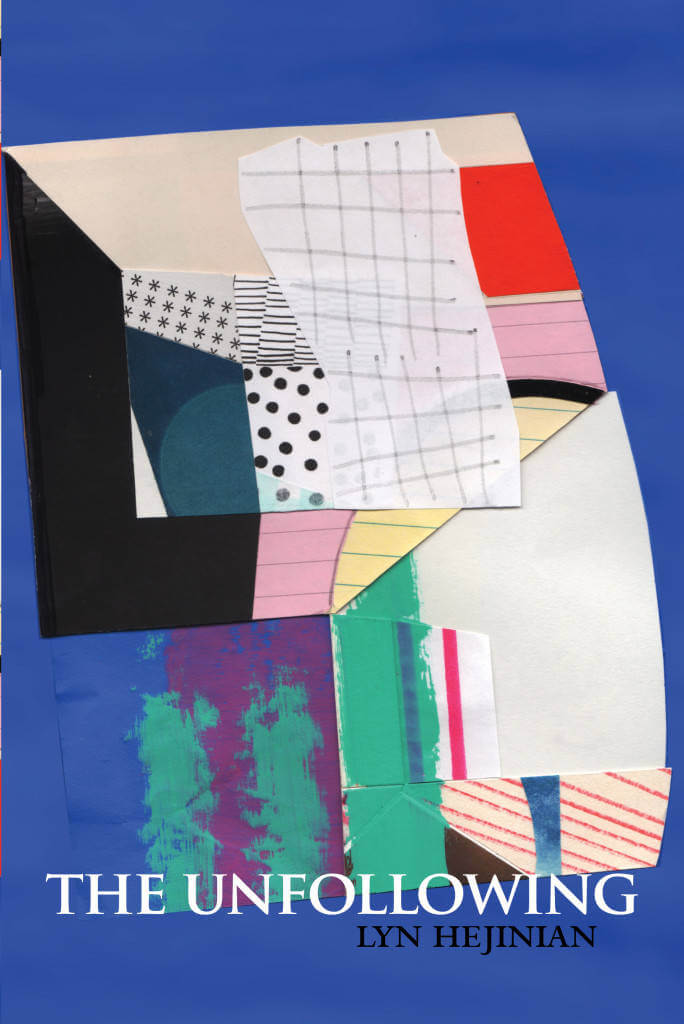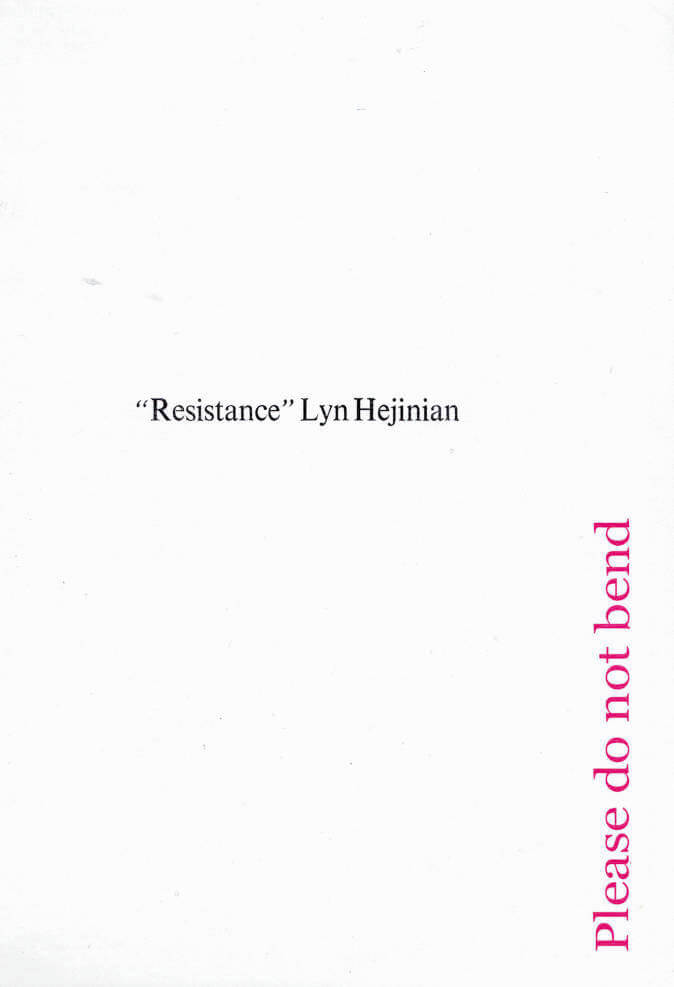
“Resistance”
Lyn Hejinian’s unpublished prose poem which (in her better-known essay The Rejection of Closure) the author reads closely as model for various, open, equitable relations between language and things (such as human bodies, as emphasised in a commentary exploring the destituent potential of Hejinian’s faltering poetic corpus, in “A Draft of Resistance” by Andrea di Serego Alighieri), in an envelope.
1. Lyn Hejinian’s unpublished prose poem which (in her better-known essay The Rejection of Closure) the author reads closely as model for various, open, equitable relations between language and things (such as human bodies, as emphasised in
2. A commentary exploring the destituent potential of Hejinian’s faltering poetic corpus, in “A Draft of Resistance” by Andrea di Serego Alighieri), in
3. An envelope.
Language: English
